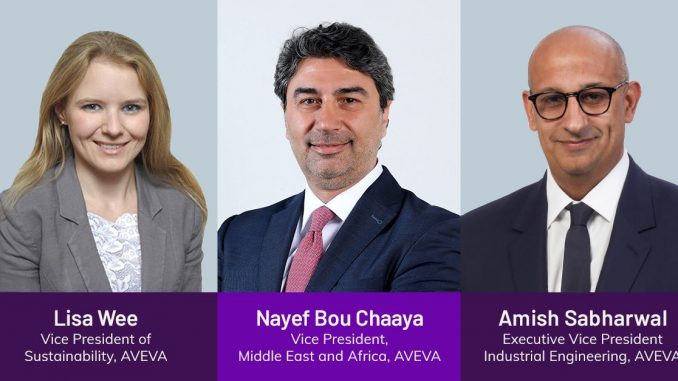
Industrial software leader returns to annual UN Climate Change Conference to show how digital technologies are driving responsible use of global resources to build net-zero economies
Casablanca, Morocco, November 2022 – AVEVA, a global leader in industrial software, driving digital transformation and sustainability, will highlight how digital technologies can support public-private partnerships and unlock innovation to close the implementation gap on climate change at COP27.
The United Nations Climate Change Conference 2022 is being held on November 6-18 in Sharm El Sheikh, Egypt. A sponsor of the parallel Climate Action Innovation Zone, AVEVA believes trusted data-led technologies are essential to decarbonization, driving responsible use of the world’s resources and delivering innovative, climate-forward products in the net-zero economy. AVEVA is one of the first 50 companies in the world1 to have its net-zero commitments validated by the Science Based Targets initiative (SBTi).
AVEVA’s presence at COP27 will be led by some of its most prominent climate advocates: Amish Sabharwal, Executive Vice-President – Engineering and Simulation and member of AVEVA’s Executive Leadership Team; Lisa Wee, Global Head of Sustainability; and Nayef Bou Chaaya, Vice-President – Middle East, Africa & Turkey.
During a number of thought-provoking sessions at the Sustainable Innovation Forum 2022, being held alongside COP27, the AVEVA executives will use real-life examples to showcase how digital technologies are unlocking opportunities in the net-zero economy.
Global opportunities in climate change mitigation
Sabharwal will join a plenary panel on November 10. Alongside UN executives, he will seek to explain why climate change mitigation represents our biggest opportunity yet.
“UN data shows that immediate action can halve greenhouse gas emissions (GHG emissions) by 2030 and put us on track to achieving our goal of keeping global temperature increases to 1.5°C above pre-industrial levels. At the same time, we are facing our biggest opportunity yet. Climate change is accelerating the fourth industrial revolution and nowhere is that more obvious than in the communities and industries here in Africa.,” Sabharwal said. “The decisions we take at COP27 and beyond will put the global economy on track to building resilient net-zero economies that drive the adaptation and mitigation agenda. Digital technologies are integral to building the new industries and supply chains that will deliver sustainable growth and create new jobs.”
Sabharwal added: “Closing the implementation gap on the world’s ambitious decarbonization commitments presents a major source of economic opportunity for businesses and communities.”
Move towards sustainability handprint thinking
On November 9, broadcaster Nik Gowing will interview Wee in the context of her role as a climate leader. She will share insights from the frontline of climate change mitigation and offer real-life examples of how AVEVA and its partners are paying it forward by co-innovating climate-responsive technological solutions to help usher in a zero-carbon economy.
“At AVEVA we recognize that we can drive exponential impact through the products we bring to market while supporting our customers on their decarbonization journey,” Wee said. “Now, our thinking has moved beyond measuring and managing our carbon footprint to considering our sustainability handprint. This positive contribution to sustainability through business activities and partnerships is a way of paying it forward to secure a better future for humanity and our planet.”
Role of partnerships in decarbonization
Also on November 9, Bou Chaaya will amplify the discussion around innovation in the face of climate change in a high-level spotlight session, with case studies of how global organizations are responding to – and taking advantage of – the opportunities arising from the focus on net-zero targets.
“Public-private partnerships can speed up delivery of the next-generation of low-carbon technologies by 2030 and break down silos in the development of new low-emission products to meet the world’s net-zero goals,” Bou Chaaya said. “AVEVA’s expertise has already demonstrated the role of digital technology in developing and scaling green grids and accelerating sustainable development through smart cities and smart water applications. We are convinced of the importance of driving private-sector collaboration on scope 3 upstream and downstream mitigation activities. We believe an open and connected industrial economy based on free-flowing data networks will be essential to hasten and scale up those sectors that are hardest to decarbonize.”

Be the first to comment